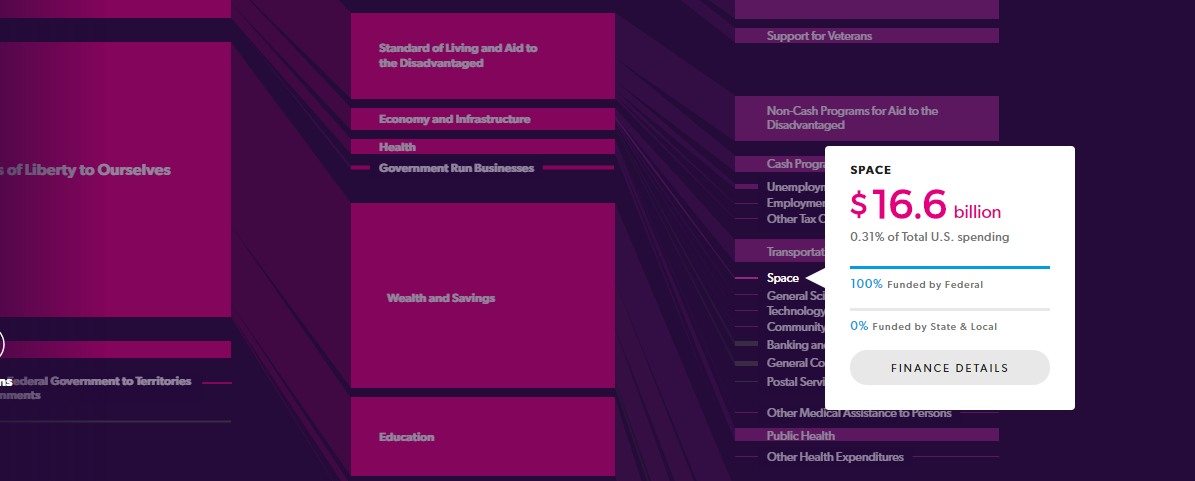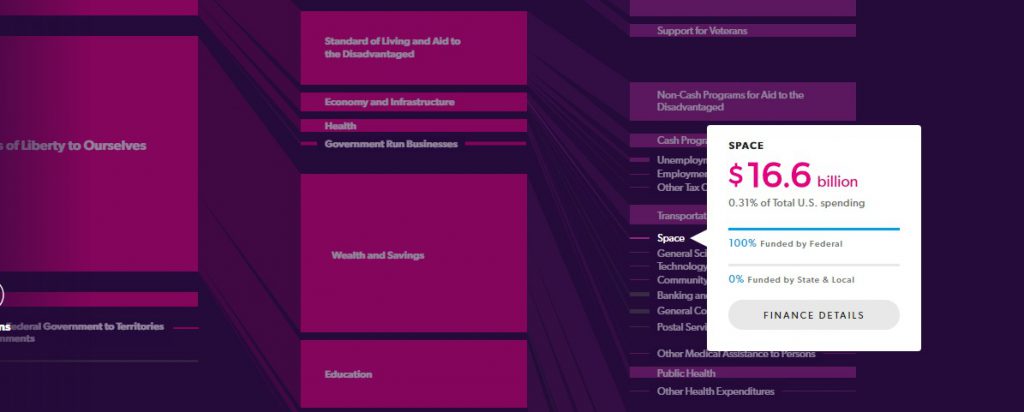Guest post by Jeff Mosenkis of Innovations for Poverty Action.
- Microsoft’s Steve Ballmer started an initiative to make government data from all levels very easy to access. So if you’re in the middle of a Facebook debate and want to know how much the government spends on healthcare versus defense, or how medicare is doing, or how many firearms are found at TSA checkpoints every year since 2005, you can find an easy chart at https://usafacts.org/
- Owen Barder argues that it would be much more effective for poor countries to prepare for disasters in advance, just like everybody else does, by taking out insurance. In a new short brief, report, and CGD event video, he argues that setting up insurance would make responding to a crisis like an Ebola outbreak orders of magnitude cheaper. An automatic payout would mean a much faster response than the current system of starting fundraising after the disaster occurs, and could be designed in a way that works with the private sector and governments to incentivize better development (freeing up governments to build effective water management in conjunction with guaranteed protections in case of flood.)
- This article was written by someone from the African Risk Capacity (ARC) insurance org, which does just that. It argues nobody heard about the drought in Senegal last year because Senegal had bought into the insurance pool, which helped it cope much more effectively than Somalia is coping now.
- But Barder adds a cautionary tale about ARC from last year. Malawi had agreed to terms requiring a payout in the case of a drought affecting more than 1.39 million people. While an assessment found over 6 million people affected, ARC’s computer models (based on satellite cloud imagery and previous years’ data) only computed 21,000 people at risk. (Though ARC did later make an $8 million payout after a household survey and concluding farmers were growing different crops than their model had assumed.)
- I’m sympathetic to the insurers though. Economists Dean Karlan and Chris Udry told Planet Money about some of their problems setting up a rainfall insurance program to test in Ghana. Insurance requires very specific and objective (non-debatable) criteria to trigger a payout, which often doesn’t jibe with how individuals are suffering, and also good data from the past to estimate future risk, both of which can be hard where rain is fickle.
- Jonathan Morduch was interviewed about his new book with Rachel Schneider The Financial Diaries, the result of them tracking every dollar spent by 235 low- and moderate-income households for a year.
- An investigative piece in BMJ finds Coca-Cola tried to influence how journalists covered scientific research. According to the piece (gated), the company funded conferences for journalists to attend, through grants to the University of Colorado so the journalists didn’t know the true sponsor. At the conferences, they heard research emphasizing that obesity was exercise-related rather than about diet, in line with Coca-Cola’s marketing strategy.
This is my colleague David Batcheck’s last day at IPA, and he left me with a warning about “Big Data”
City of Detroit produced a lookup tables for its absentee precincts in 2016. It's in Excel. But wait for it: the values are CLIP ART. pic.twitter.com/pzsPbjvc6j
— OpenElections (@openelex) April 17, 2017



5 Responses
Jonathan Morduch was interviewed about his new book with Rachel Schneider The Financial Diaries, the result of them tracking every dollar spent by 235 low- and moderate-income households for a year.
golu dolls
golu dolls
D.E.A, Uluslararası Kredi ticaretinde (ILT) güvenilir, güvenilir ve güvenlidir. Lütfen acil bir kredi teklifi almak için bu fırsatı sakın kaçırmayın, 2018 ila 2023 yıllarını doğrudan yatırıma başlayarak yüzde 3’lük düşük bir yüzde oranı ile başlamak bir köprü. Emaill: [email protected] % 100 garantilidir. Uluslararası banka havalesi bankası çok hızlı ve güvenlidir, bu nedenle bu fırsatı kaçırmayın.
Grеat article, totally what I wanted to find. Thanks for sharing!
golu dolls
Спасибо большое за статью. Все очень понятно и подробно расписано. Пойду пробовать! )